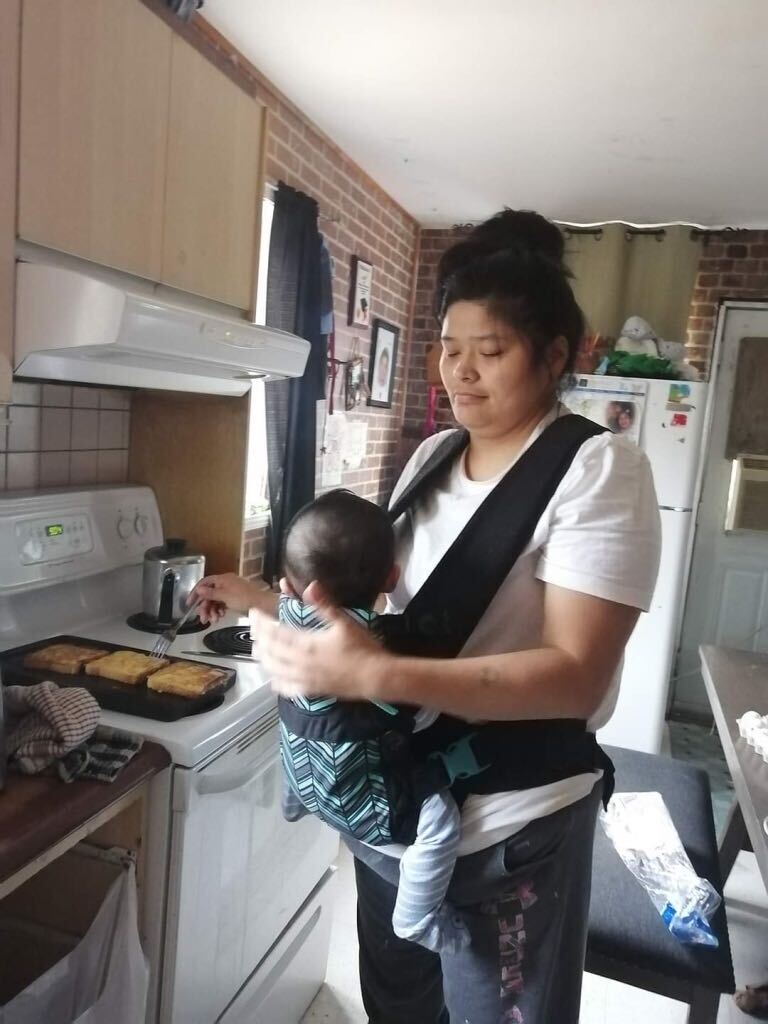A Quebec coroner stood by her recommendation that the provincial government recognize systemic racism and act upon it following her inquiry into the death of Joyce Echaquan, an Atikamekw woman who was subjected to racist taunts by health-care staff as she lay dying in hospital.

Géhane Kamel, who oversaw the inquiry into the death of Echaquan, addressed her findings in public Tuesday after her report was released last week.
“We were witnesses to an unacceptable death,” she told reporters gathered in Trois-Rivières. “And we must ensure that it is not in vain.”
Echaquan, a 37-year-old mother of seven from the community of Manawan, posted a video on Facebook live of the derogatory comments made toward her by a nurse and orderly. She died shortly afterwards on Sept. 28, 2020 at a hospital in Joliette, northeast of Montreal.

The video of her treatment went viral and drew outrage and condemnation. The final report into her death found her initial diagnosis was based on prejudice and Echaquan wasn’t properly monitored before finally being transferred to intensive care.
The inquiry found Echaquan died of a pulmonary edema that was linked to a rare heart condition. Kamel said the death was accidental, but preventable — and that racism and prejudice contributed to it.
Echaquan should have received the care she was entitled to, she added.
“From the beginning, she was infantilized,” Kamel said, referring to Echaquan’s admittance and treatment in the hospital.
When asked if Echaquan would still be alive if she were a white woman, Kamel replied: “I think so.”
The coroner has urged that Quebec recognize systemic racism and weed it of its institutions. On Tuesday, Kamel said that pre-conceived notions and prejudice are not limited to one hospital, but within establishments across the province.

Get breaking National news
“Systemic racism doesn’t mean everyone is racist,” she added.
She also urged decision-makers to give equal weight to her other recommendations, which include better staff-to-patient ratios, improved communication between health authorities when it comes to patient medication, and more training for staff on racial sensitivity and standards of care.
In the afternoon, a lawyer for the family welcomed the coroner’s findings — saying he hopes her recommendations will be implemented. What Echaquan experienced is a “perfect example of systemic racism,” said Patrick Martin-Ménard, adding there was “negligence at several levels.”
“Unfortunately, what Mrs. Echaquan went through is not an isolated case,” Martin-Ménard told reporters.
Carol Dubé said the inquiry into the death of his late wife was extremely difficult for the family. He called for justice for Echaquan, adding that he hopes that no other families like theirs have to experience what they went endured.
“Joyce is dead because she was an Indigenous woman,” Dubé said.
Martin-Ménard said they would launch legal action against the hospital where Echaquan died. He said he would also be filing a complaint against Quebec’s order of nurses and the order of physicians, asking them to review the entirety of her care. He said he would also file a complaint with the province’s human rights commission.

Legault continues to deny systemic racism
Despite the recommendation from the coroner, the Legault government has steadfastly denied that systemic racism exists in the province.
Premier François Legault said Tuesday there are “several definitions” of systemic racism and once again stopped short of acknowledging that it exists in Quebec. He said it is clear that Echaquan was a victim of racism and prejudice, but that it doesn’t mean the “whole system — in education, in health care— is racist.”
What is important is that practices change, Legault said.
“It’s unacceptable,” he said.
“We have to assure that we do everything possible that it doesn’t happen again.”
Legault says that for him, a system is something that “starts from the top.” While some employees or managers may engage in discriminatory practices, he said, they are not ordered to do so from their superiors.
“The point is not who is right,” Legault said. “The goal is that we all work together to fight prejudice, discrimination and racism.”
‘Actions must be taken’
The Council of Atikamekw of Manawan and the Council of the Atikamekw Nation also welcomed the coroner’s findings, saying in a statement it is now “looking to the next steps that will be necessary to prevent such tragedies from happening again.”
They will both continue to advocate for the adoption of Joyce’s Principle, a series of measures aimed at ensuring equitable access to health care for Indigenous patients and recognizing systemic racism. The province has agreed to adopt much of what is in the document, but it does not accept the reference to systemic racism.
READ MORE: Quebec premier says he wasn’t a leader during raucous debate on Joyce Echaquan anniversary
“We, the Atikamekw, have been working for a long time to find solutions for the great social challenges we face,” Atikamekw Nation Grand Chief Constant Awashish said.
“We are not discouraged, we know how to be patient and resilient, but now actions must be taken to heal and build.”
—with files from Global News’ Phil Carpenter and The Canadian Press









Comments
Want to discuss? Please read our Commenting Policy first.